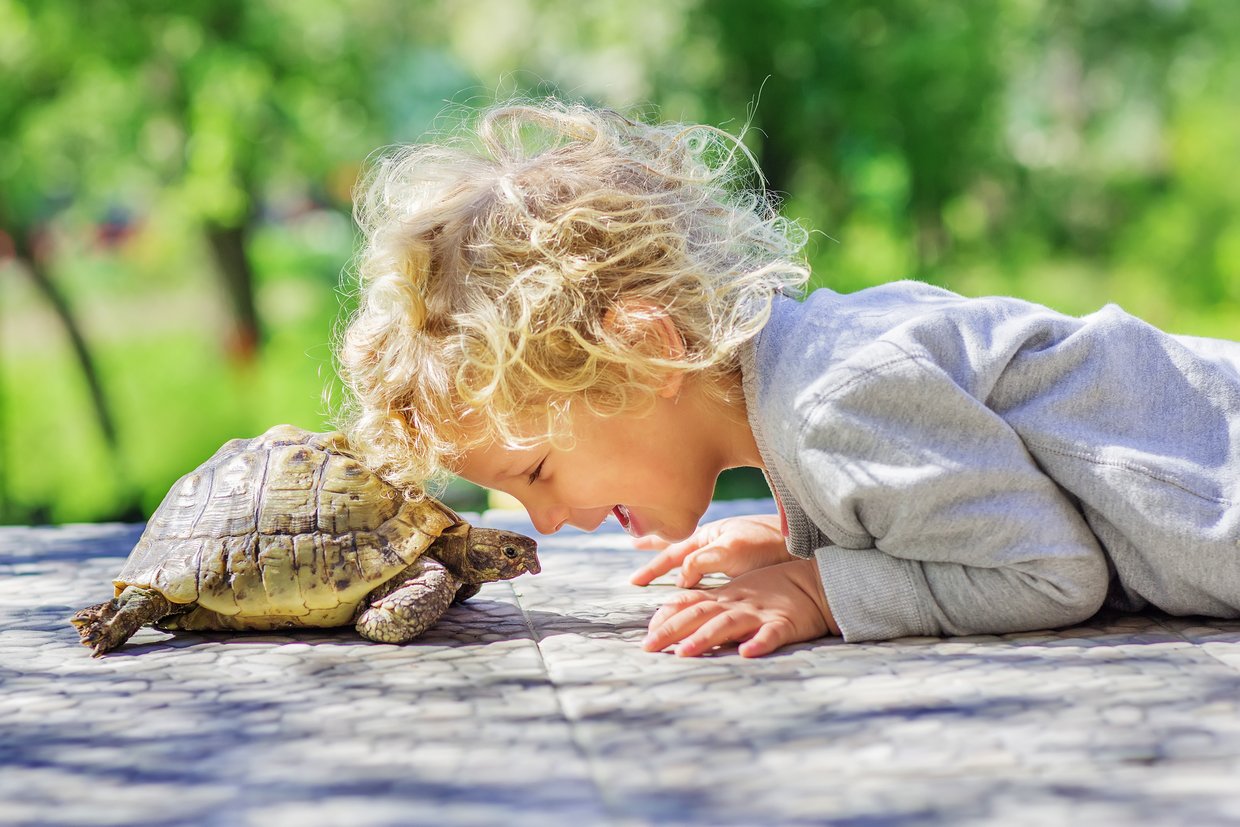Don’t kiss your tiny turtle: US health authority warns of salmonella outbreak linked to pet reptiles

The US Centers for Disease Control and Prevention has issued a warning of salmonella linked to small turtles spreading across the country. Children are said to be in particular danger, with one fatality reported.
The CDC published an investigation notice online on Thursday, saying that the number of cases of salmonella has risen to 64 and has spread to 17 states and the District of Columbia. It says the first cases of the disease linked to small turtles were registered in August last year and have been on the rise since.
In a video titled ‘The Trouble with Tiny Turtles’, the CDC offers recommendations on how to avoid becoming infected.
Don’t kiss or snuggle your turtle, and don’t eat or drink around it. This can spread Salmonella germs to your mouth and make you sick.
Other advice includes washing hands thoroughly with soap and water right after touching a pet turtle and after cleaning its tank. The kitchen and other areas where people eat should be a no-go zone for the pet reptiles.
And don’t just toss out your turtle if you don’t want it anymore, the CDC advises, but instead take it to a reptile rescue or pet store, as releasing pets into the wild can disrupt wildlife and may be prohibited in certain states.
The age of people suffering from the illness ranges from under one to 59 years old, with an average age of six. Children under the age of five make up 45% of the cases. Nearly half of the patients have required hospitalization. One death (of an adult) has been reported in Pennsylvania, in which the disease was a contributing factor, the CDC says. It adds that the actual number of sick people is likely to be higher and the outbreak may not be limited to the states with known illnesses.

Pet turtles can carry Salmonella germs in their droppings even if they look healthy and clean, the CDC said. It warns against buying turtles from roadside vendors, flea markets, and online stores. A federal law bans the sale of turtles smaller than four inches long (10.16cm) due to the threat of infection.
In February, there were 22 people infected with Salmonella Typhimurium in seven states – Pennsylvania, North Carolina, Maryland, New Jersey, California, Florida, and Connecticut. Most of the cases were reported in Pennsylvania.
Salmonellosis is an infection of the gastrointestinal tract, with diarrhea being the most common symptom. Other symptoms include fever, headache, nausea, and vomiting. Salmonellosis can cause severe illness, such as bloodstream infection, bone and joint infection, meningitis, and can be particularly dangerous for young children, the elderly, and those with weak immune systems.
In May, the CDC issued a warning against hugging chickens, as they can also carry the bacteria that causes salmonellosis.
Also on rt.com Don’t hug your chickens before they hatch? Bizarre CDC guidance about SNUGGLING POULTRY raises fluffy eyebrowsThink your friends would be interested? Share this story!












